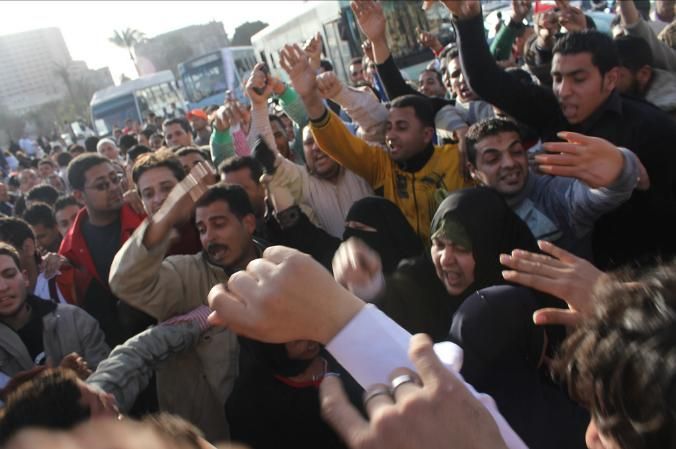 A decade ago I came to know a Yemeni American in Aden. Her father was a Chinese sailor who jumped ship in the Bab el Mandeb and patriated. Raised in the southern province, she married an American Marine and immigrated to the United States. She’d returned when he fell ill.
A decade ago I came to know a Yemeni American in Aden. Her father was a Chinese sailor who jumped ship in the Bab el Mandeb and patriated. Raised in the southern province, she married an American Marine and immigrated to the United States. She’d returned when he fell ill.
This was a proud American. She boldly wore clothing displaying the stars and stripes while tending her father’s business. At times like these, I wonder how she is; if she is still there and if, like many other Americans who find themselves overseas in the midst of turmoil through personal circumstance, she will be safe.
Yemen looks to be another case where no one paid enough attention until it was too late. Most Americans don’t have a context beyond a vague regional orientation; just another homogenous nation of Arab Muslims with a quasi-legitimate leader gone corrupt or a dictator who is responsible for all that ails. They have small inkling of the complex relationships and internal tribal contests or that Gamal Abdel Nasser (Hussein) sent Egyptian forces to shore up a military rebellion inspired by his Pan-Arab intrigue 50 years ago; that Yemen remained divided North and South for years and that animosity and mistrust persists. South Yemen experimented with communism, but did not inhale very deeply. The Saudis have no interest in a strong partner on their border (especially one that is Shia led) and lay claim to some if not all of the territory; otherwise uninterested in the nation’s welfare. The national identity remains confused to this day. And we Americans have a role.
Britain drew the area around Aden into the Commonwealth a century before all of this. In the years I was involved in Yemen, a consistent theme in the English language newspaper published in Aden was the longing for a return to the good old days of British hegemony and membership in the Commonwealth. Aden has a sister city in the Netherlands and a Dutch windmill along a thoroughfare to commemorate it. 10 or so Iraqi tankers seized in the First Gulf War remained for years anchored and rotting in the port. Yemen is a collage of its history.
When I travelled around Yemen, foreigners who looked well-to-do were regularly kidnapped. I stayed in local hotels and was feted in restaurants along the highway from Sana’a to Aden, often stopping to climb volcanic outcrops, viewing crater lakes or resting and taking tea. It is a ruggedly beautiful and other-worldly environment. Apparently, I didn’t look well-to-do. That was in no little part due to the pilferage of my sports coats almost every time I went there. Sports coat over thobe is a local fashion statement.
There were, I was told by our crack intelligence people in the embassy, some 5 weapons per capita; mostly guns; knives too. Yeminis are not to be trifled with. In the hinterland, homes are fortresses, often perched atop the high ground, barely accessible in any case. I often wondered their source of water.
This is a poor country; per capita income of around $2,400 a year. Maybe that is a reason the use of caq is part of the culture. At afternoon gatherings, the “mild stimulant” is shared with the tea and juice, energizing social dialogue that eventually fades, with not a few dozing off. Personnel from the embassy have waivers allowing them to partake; etiquette demands it. In the evenings while walking through the souq, my cohorts would pick through the leafy stems like shopping for vegetables, sampling a leaf or two along the way, commenting on the quality. It gave flesh to the term “going native.”
The natives have been very restless for months now, inspired by events elsewhere, beamed in by satellite. They aren’t rallying around a leader so much as an idea that they can take out their anger on a government that isn’t delivering what little wealth there is. There is no promise of anything better in the aftermath of Ali Abdullah Saleh’s departure. Plain fact: it will likely be worse. The vacuum will be filled by the only alternative authority allowed to coexist all these years: clerics like Abdul Majid al-Zindani, a one-time mentor of Osama bin Laden. None of them are known for their economic prowess and any of them would turn the anger no longer focused against Saleh in another direction. Guess which?
And that is when Americans and others minding their own business are swept up in the moment. We are very aware of the connections we have to places like Bahrain and Egypt. But in every situation where trouble threatens the safety of Americans who may be there, it is surprising just how many are present wherever it is, showing up out of the countryside to be evacuated. There are do-gooders, missionaries, business people, oil-field hands, and family members just like that woman in Aden whose lives are suddenly at risk simply because they are Americans. The more we have meddled, the more at risk they are. Somewhere, someone is planning a Yemen noncombatant evacuation. For Americans like her, leaving is not so simple a decision. It is people like her I think about when I see John “we are all Georgians” McCain doing whatever in the world it is he is doing; vetting rebel leaders from al Qaida members or whatever. I just hope he doesn’t put the final nail in the safety of her and thousands of other Americans living throughout the region.

![[UPDATED with Official Announcement] Audio: VA Del. Dan Helmer Says He’s Running for Congress in the Newly Drawn VA07, Has “the endorsement of 40 [House of Delegates] colleagues”](https://bluevirginia.us/wp-content/uploads/2026/02/helmermontage.jpg)
















